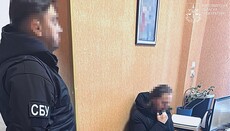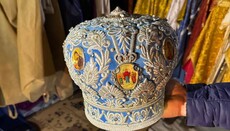Filaret accuses head of OCU Epiphany of violating the bishop’s oath

Epiphany Dumenko sets a bad example for the "hierarchs" of the OCU, "Patriarch" Filaret believes.
In response to the Decree of the head of the OCU dated May 29, 2019, by which Epiphany Dumenko cancelled the Decree of the “honorary patriarch” banning the “cleric” Alexander Trofimliuk from priesthood, Filaret said that such actions of the “primate” will not lead to the unity of the OCU and Ukrainian Orthodoxy as a whole.
“I received your decree on accepting to your eparchy Archpriest Alexander Trofimliuk from the Holy Intercession (Pokrovsky) parish on Solomenka, banned by me from priesthood, with his clergy, without a leave letter,” Denisenko said in a message published on the UOC KP website on May 30. “This gives me a reason to express my regret that you begin your ministry as Primate with a violation of the bishop's oath and the Orthodox Church tradition, and thus set a bad example for the bishops of our Church.”
Filaret stressed that such actions of Dumenko “will not only lead to the unity of our Church and all Ukrainian Orthodoxy but also to the destruction of what led to the receiving of the Tomos of autocephaly and your election as Primate”.
We recall that Filaret, who, according to the statute of the OCU, governs its Kiev Eparchy, banned from priesthood Alexander Trofimliuk, the rector of the Pokrovsky Church of Kiev, on May 28, 2019. Trofimliuk is the right hand of Epiphany and the Rector of the Theological Academy of the OCU, which houses the office of the head of the OCU. Filaret’s decree is written on the official letterhead of the Kiev Patriarchate. On May 29, he sent Boris Tabachek, a cleric of St. Vladimir’s Cathedral, to the Pokrovsky Church in order to take control of the temple. The “bishop” of the OCU Adrian Kulik called such actions of Filaret the “seizure” of the temple, and OCU “Metropolitan” Joasaf Shibaev of strongly criticized Epiphany, accusing him of neglecting the canons.
On May 29, Filaret and Epiphany published two Decrees in which they accused each other of not observing church canons.





